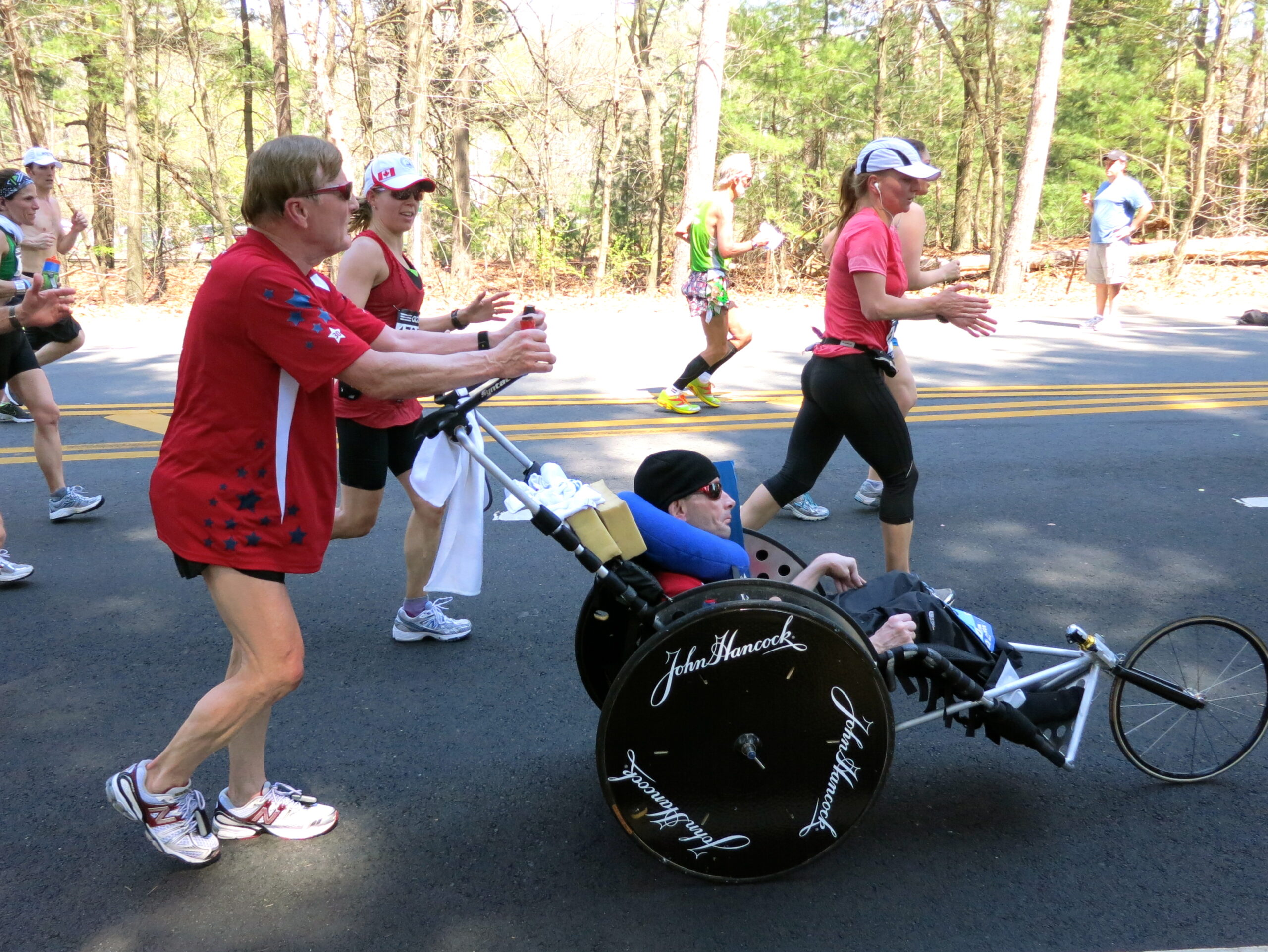I remember it like it was yesterday. I was a junior in high school, and sat three rows back, middle row of my English literature class at St Anthony’s High School in New York. Brother Jeff, a Franciscan brother who was a pleasant combination strict and jovial, was my teacher. He was handing back some essays we had written.
I eagerly awaited mine, as I could write a pretty good paper with minimal effort. When Brother Jeff handed my back my paper, I thought it was a mistake. There was a big, red “F” on the top.
“Brother Jeff, there is no way this paper was an ‘F,’” I protested. “I know it’s better than that.”
He put his hands on my desk and looked me in the eye. “I didn’t give you an ‘F’ based upon what everyone else can do. I gave you an ‘F” based on what you are capable of doing, and your paper is garbage (actually his language was a bit more colorful.)”
“No way,” I continued. “That paper is fine.”
“No John, it’s not. It’s far from your best effort, and quite frankly it offends me that you have the nerve to turn that in. You are a damn good writer, and you should be ashamed to turn something like that in. In fact, I don’t want you in my class anymore until you decide to use the gift you have been given and put a little more effort into your work.”
With that Brother Jeff grabbed my books off the desk, walked over to the window, and tossed them three stories to the ground below. “Now get out,” he said as he pointed to the door, “and don’t hand in junk like that ever again.”
As I walked out with a huff, I was embarrassed. I was angry. I was beside myself.
And I have also dedicated both my books, my masters thesis, and will dedicate any forthcoming books I write to Brother Jeffrey Michael Pederson. Why? Because that day, in 11th grade english class, he changed my life.
He made me believe that I was a good writer when I put forth the proper effort. He made me see something in myself that I had never seen before, and may not have seen on my own. Every one of the hundreds of thousands of words I have published since I started this blog and wrote my first book in 2012 I can trace back to Brother Jeff.
That is “The Rule of One.”
One person. One comment. One time. It can change a life forever.
“The Rule of One” is the phrase my great friend Dr Jerry Lynch calls such powerful, life changing teaching in his books Coaching with Heart and The Way of the Champion (both mandatory reading for coaches if you ask me). Jerry and I recently conducted an all day workshop for USA Swimming together, and we discussed the rule as it pertains to leadership and building the right type of environment for athletes to succeed. Jerry shared a very similar story to mine about a college professor who convinced him to be a writer. He has now written twelve books that have been published in over 20 languages.
“He made me believe I could write,” said Jerry, as he turned to the crowd. “That is the power of ‘The Rule of One.’”
Whenever we ask any group of coaches “can you point to a ‘Rule of One’ moment in your life?” everyone raises their hand. Every single person. Perhaps it was not a coach, but it may have been a teacher, an uncle, or an older athlete who believed in them. Everyone is affected by “The Rule of One.”
When amateur golfer Buddy Marucci qualified for his first Masters, he was paired with golf legend Arnold Palmer. Marucci was incredibly nervous, until Palmer walked up to him on the first tee and said “Today is going to be one of the most memorable days of your life. If there is anything I can do to make it better, please let me know.”
Mia Hamm wanted to be the best soccer player in the world, and worked relentlessly to achieve that. Her coach at the University of North Carolina, Anson Dorrance, once observed her training alone at 6am on his way to work, and sent her the following note: “The vision of a champion is bent over, drenched in sweat, at the point of exhaustion, when no one else is watching.”
These are examples of “The Rule of One,” a comment that can stick with a person for the rest of his or her life. Everyday is an opportunity to empower and inspire an athlete. Our words can be affirming and life changing, or demeaning and depressing. We don’t get to pick and choose which ones stick, and which ones our kids forget, so we better be careful.
Today, I want to call upon all the adults who are involved in youth sports to remember that the Rule of One applies to you. Think about a coach or teacher whose words or actions changed your life. Maybe even send them a note of thanks. But more importantly, make a commitment to make that type of difference for another. Whether you are a coach, an administrator, or a parent, every time you step on the field is an opportunity to find that one person, and make that one, life changing comment.
Here are a few tips on how to make sure the Rule of One can positively affect your athletes:
Be Aware. Your influence is never neutral, and we must be aware of the impact of our words and actions. Don’t ever think that you do not make in impact, especially once you are in a position of authority such as a coach or parent. There are certain times that are highly emotional (end of games, after a mistake, after a great play) where your words can be a bit stickier.
Timing is everything! Catching an athlete doing something great after overcoming adversity, or a word of encouragement after a disappointing outcome can be very powerful. Similarly, the opposite can be true. A harsh word after a major disappointment rarely helps, nor does strong criticism right after a player just did something very well. People tend to remember the things they learn right after they have a strong emotional response to an event, so understand that there are certain times to teach, certain times to inspire, and certain times to leave it unsaid for now.
Be Intentional: Whenever I substitute a player, I am at midfield to shake every athlete’s hand as he or she steps off, regardless of how they played. If they are doing well, it’s a smile, a high five and a “well done.” If they are struggling or upset, it’s a smile, a high five, and a “keep your head up, get a drink, I have an idea that might help and I will be right over.” This takes a bit more effort than many coaches care to exert, but the difference it can make in the life of your athlete can be huge. Everyone gets acknowledged. Everyone gets a reminder to focus on the process. Every time.
Be Transformational: Coach the person, not the sport. Some kids need a hug, and some need a metaphorical kick in the rear. Some need a quiet word, and others will respond to a shout across the field or court. It is up to you to realize what every individual needs, and do your best to deliver it to him. If you shout at the athlete who responds best to the quiet word on the side, you will not inspire. If you fail to show caring and love to the the athlete who never gets them at home, you will not connect. Your delivery must match the needs of the recipient.
A transformational coach values the things that are hard to measure. It’s easy to recognize athletes when you count points, goals, saves, and rebounds, but that is insufficient. Athletes need you to validate the things that are much harder to measure, but mean far more. Was she fearless? Was he a hustler? Did she bring positive energy? Did he improve in the area you worked so hard on in practice? A life changing “Rule of One” comment will rarely be about something easily measured such as “nice goal out there.” But when you say to an athlete “I’m so proud of you, look at what you have become when you play with such energy and courage” you can change a life.
Next time you step on the field, remember that “The Rule of One” applies to you. Whether you are an adult working with a child or an upperclassman/team captain speaking to a teammate who looks up to you, you wield tremendous power.
One person.
Once comment.
One time.
It can change everything.
Now go make a difference.
(Please share this and thank a coach or teacher below who changed your life. If you have a Rule of One story you would be willing to share please post it.)











Comments